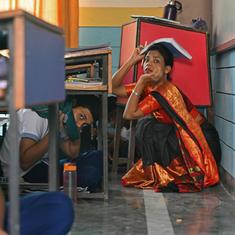Successive waves of the Covid-19 pandemic have disrupted lives globally and across India. Signs of exhaustion are everywhere, be it the economy, everyday life or our healthcare services. Our efforts to control the pandemic have disrupted health services for other diseases.
One such collateral damage is tuberculosis care. The first two waves of the pandemic severely impacted TB diagnosis and treatment services. India saw a 25% relative reduction in the annual notification of TB cases between 2019 and 2020. This means we potentially missed detecting lakhs of TB cases. In terms of the impact on TB treatment services, while exact numbers are hard to come by, the National Health Mission’s Health Management Information System data estimates that there was a 45% decline in the patients that had registered for TB treatment in June 2020.
Beyond numbers, TB affected persons are facing everyday challenges such as the lack of timely treatment availability and uptake, as also the lack of access to support for adherence and managing side effects.
TB treatment impacted
TB treatment is lengthy, lasting anywhere between six months to 24 months. To be cured, affected individuals need to complete treatment without missing a single dose. What is often overlooked is that this treatment is toxic with many side effects like nausea, mood swings, possible vision impairment and hearing loss and mental health side effects. So, without support to manage these side effects, completing treatment is an uphill task.
In this pandemic, TB affected individuals have suffered in both the public and private sectors. India’s public healthcare is overburdened and has limited human resources and infrastructure. With these resources diverted to deal with Covid-19, the public sector has been often unable to meet the healthcare needs of TB affected persons on treatment.
Take Bihar and Rajasthan, 70% of TB control staff was diverted to Covid-19 in Bihar and Rajasthan’s TB staff was also diverted to deal with Covid-19. These are both high burden TB states.
In the private sector, with health personnel being focused on Covid-19, affected persons often could not access their treating doctors. With Covid-19 being the priority, persons with TB had to wait for advice, access and tests.

Even for drug-resistant TB, a dangerous form of the disease, where the stakes are life and death, affected individuals have faced challenges to access treatment. Also, newer drugs that could have eased the suffering and shortened treatment duration, have remained difficult to access in the private sector. Given the long treatment, fear of infection and often limited resources, this disruption in treatment has been devastating for TB affected individuals.
In our attempts to fight Covid-19 we cannot forget TB. While Covid-19 is a crisis, TB kills over 1,200 Indians every day.
Way ahead
So, how do we move forward from here? To begin with, the National TB Elimination Programme needs to formulate a national recovery plan for the disease. This would allow us to focus on bringing TB care back on track, catch up with the losses we have faced, and plan for contingencies to minimise future disruptions in TB care.
In the context of TB treatment, we need to adapt existing delivery approaches to this continuing pandemic. The pandemic is preventing TB-affected persons from accessing treatment, hence diagnosis and free high-quality treatment need to be delivered in community settings. There is also the need for remote digital and community-based treatment support.
Additionally, the need for credible and accurate communication on TB treatment is critical. The government must launch multilingual community targeted programmes that inform affected persons about their treatment, and how to manage any related challenges.
Patient support has a critical role to play here. When health workers are caught up due to Covid-19, basic queries of TB affected persons can also be remotely addressed through local networks and support groups. We at Survivors Against TB have been running a virtual helpdesk since the pandemic to provide TB affected individuals with public health information. The helpdesk has been useful to many who had nowhere else to turn to during the lockdowns.
Providing TB affected individuals and families with economic support is critical at this time. Those affected by TB employed in the informal economy, cannot complete treatment if they do not have enough to eat, especially when both TB and now Covid are costing them their livelihoods. One way to support them is to increase the benefits under the existing TB nutritional scheme Nikshay Poshan Yojana from Rs 500 per month to at least Rs 2,000 per month.
Ending stigma
While TB affects more men than women, women and LGBTQIA++ individuals are more likely to face harassment and get poor care. National TB Elimination Programme’s existing Gender Responsive Framework, is exclusionary. We need to consult individuals of diverse gender and sexual identities about their TB care needs and revise this framework to make TB care inclusive and gender-responsive for all.
And finally, we need to act on TB and its related stigma and discrimination that robs affected individuals of their jobs, families, and dignity. Stigma is a critical, unaddressed roadblock in accessing and completing TB treatment for all genders but more so for gender and sexual minorities. We need to actively address stigma if we want to eliminate TB.
Let us not forget that dealing with these twin epidemics is a mammoth task. Multi-stakeholder partnerships between affected communities, the government sector, the private sector, and civil society are urgently needed to get TB treatment services back on track. This needs to be done urgently because every life we lose to TB, is a life that could have been saved.
Chapal Mehra is a public health specialist who works extensively in the areas of infectious diseases like tuberculosis and HIV and Ashna Ashesh is an MDR TB survivor, public health professional and lawyer. They are both associated with Survivors Against TB – a collective of survivors, advocates and experts working on TB and related comorbidities.










